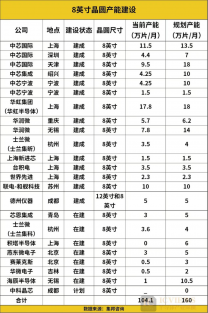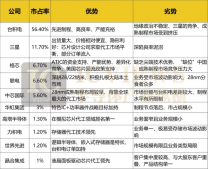BANGALORE, India—While global semiconductor revenue is projected to expand by 7.2 percent in 2011, Walden Rhines, chairman and CEO of EDA vendor Mentor Graphics Corp., sounds a note of caution about maintaining this growth in 2012.
IHS iSuppli‘s newly revised forecast calls for global semiconductor revenue to rise to $325.9 billion in 2011, up from $304.1 billion last year. The firm’s previous outlook, issued in April, projected that chip revenue would rise by 7 percent this year.
“But I have some concerns about the growth next year because capital investment in foundries in 2010-11 has been very high and there is some worry that there would be some oversupply,” Rhines told reporters on the sidelines of the Tech Design Forum 2011 here late last month.
Rhines said that foundries, including Taiwan Semiconductor Manufacturing Corp. (TSMC), Globalfoundries Inc. and Samsung Electronics Co. Ltd. have nearly doubled their capital investments compared to the past two years. “So one would expect that rather than running at 95 percent capacity as they did in 2010, they would start to run at a lower capacity in second half of 2012 because they are bringing on so much new capacity in the second half of 2012, ” Rhines said.
An across-the-board reduction in capital utilization among foundries would cause wafer prices to fall. Falling wafer prices would lead to falling semiconductor prices, which would result in more demand, Rhines said.
But although foundries may start lowering their prices in response to lower capacity utilization, equipment suppliers may not follow suit, Rhines said. This would reduce the total available market (TAM) for the semiconductor industry, Rhines said.
“Semiconductor TAM decreases even though unit volume grows, so we have a price recession,” Rhines said. “That‘s what happens every once in a while in the semiconductor industry. That’s the chief worry everyone has at this point of time—being hit by a price recession in the second half of 2012.”
But any price recession would eventually be overcome by tremendous growth in areas like mobile communication devices, automobile, security and several others, Rhines said.
“The problem is that you have doubled the investment in foundry wafers while investment in memory is very modest. So I would expect the fabless companies will find that there is a plenty of capacity starting second half of next year leading a likelihood of price competition in fabless semiconductor industry,” Rhines said.
“But as long as overall economy continues to grow, this would be short-lived,” Rhines added. “Prices would come down, people would buy more products, they will design new applications, they will find they can do new things because the product is cheaper, they grow new markets and we recover.”











